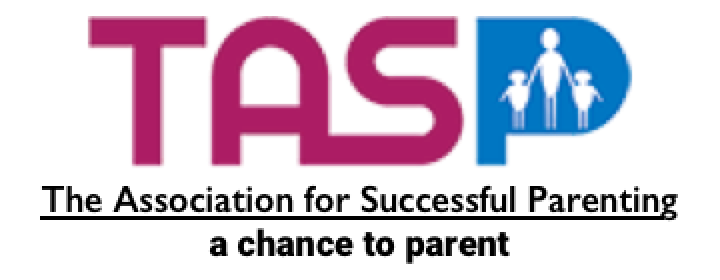June 27, 2023
Debunking Myths: Parenting with an Intellectual Disability
Written By Lindsay Brillhart and Chelsea Tighe
Parenting is a challenging journey, requiring love, dedication, and resilience. Unfortunately, parents with intellectual disabilities often face unfair assumptions and misconceptions regarding their ability to provide adequate care for their children. In this blog post, we aim to debunk common myths surrounding parenting with intellectual disabilities and shed light on the facts supported by research and expert opinions. Let’s challenge these stereotypes and promote a more inclusive understanding of parenting abilities.
Myth
Parents with intellectual disabilities are incapable of providing adequate care for their children.
Fact
Intellectual disability does not automatically equate to inadequate parenting skills. Research has shown that with appropriate support and resources, many parents with intellectual disabilities are fully capable of creating a safe and nurturing environment for their children. [Source: Feldman & Case, 1999]
Myth
Children of parents with intellectual disabilities will inevitably experience poor outcomes.
Fact
The outcomes for children of parents with intellectual disabilities can vary widely and depend on various factors such as available support systems, access to resources, and the overall quality of the child’s environment. When appropriate support services are in place, children of parents with intellectual disabilities can thrive. [Source: Dykens & Cassidy, 2011]
Myth
Parenting assessments and interventions are not effective for parents with intellectual disabilities.
Fact
Tailored parenting assessments and interventions have proven to be effective in supporting parents with intellectual disabilities. These programs focus on building parenting skills, providing support networks, and addressing specific needs. With proper support, parents with intellectual disabilities can learn and develop effective parenting strategies. [Source: Taylor & Seltzer, 2010]
Myth
Removing children from parents with intellectual disabilities is always in the child’s best interest.
Fact
Child removal should be a last resort, based on clear evidence of abuse, neglect, or immediate safety risks. Maintaining the family unit, with appropriate support services, is often in the best interest of the child and promotes positive outcomes for both the child and the parent. [Source: Pfefferle & Sperry, 2012]
Myth
Parents with intellectual disabilities cannot learn and improve their parenting skills.
Fact
Parents with intellectual disabilities can learn and enhance their parenting skills through interventions and support. With access to education, guidance, and practical tools, they can acquire the necessary skills to meet their children’s needs and enhance their parenting abilities. [Source: Llewellyn et al., 2003]
Parenting should not be judged solely based on intellectual abilities. Parents with intellectual disabilities are loving, caring, and effective parents when provided with the necessary support systems and resources. Challenging these myths and promoting inclusivity is essential for ensuring the well-being of both parents and children. By recognizing the strengths and capabilities of parents with intellectual disabilities, we can foster a more inclusive society that supports all families.
References
- Feldman, M. A., & Case, L. (1999). The Americans with Disabilities Act and its implications for parents with mental retardation. Mental Retardation, 37(1), 7-16.
- Dykens, E. M., & Cassidy, S. B. (2011). Correlates of positive outcomes in adults with mental retardation. American Journal on Intellectual and Developmental Disabilities, 116(1), 1-17.
- Taylor, J. L., & Seltzer, M. M. (2010). Changes in the autism behavioral phenotype during the transition to adulthood. Journal of Autism and Developmental Disorders, 40(12), 1431-1446.
- Pfefferle, S. G., & Sperry, L. (2012). What happens when a child’s primary caregiver has an intellectual disability? Results from a systematic review of the literature. Research in Developmental Disabilities, 33(2), 419-436.
- Llewellyn, G., McConnell, D., Honey, A., & Mayes, R. (2003). Parenting with intellectual disabilities: An exploration of parents’ and professionals’ experiences. Journal of Applied Research in Intellectual Disabilities, 16(1), 33-50.
About Lindsay Brillhart

Lindsay is a mom of 2 girls. She is a strong self-advocate for her kids and others. She currently resides in Cincinnati with her partner Phil and 2 kids: Julianna 20, and Sara, 11. She was once on the People First of Ohio board. She is a Partners in Policy graduate. She is also a graduate of PATHS (Providing Alternative Thinking Strategies). In her spare time, she loves to travel and to meet new people.
About Chelsea Tighe

Chelsea Tighe, M.Ed. is the Executive Director of TASP and has over 20 years of experience in the field of disabilities. With a background in developmental disabilities, early intervention, childcare, and family support, Chelsea’s work is firmly rooted in increasing positive outcomes for children and families as both a front-line worker and as an administrator. Prior to joining TASP in 2017, Chelsea worked at the Kennedy Krieger Institute in Baltimore, Maryland for 12 years, where she was the Director of the Family Support Services Program and the Growing Together Supported Parenting Programs at PACT.

